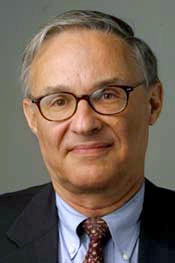Related Research Articles
British science fiction writer Arthur C. Clarke formulated three adages that are known as Clarke's three laws, of which the third law is the best known and most widely cited. They are part of his ideas in his extensive writings about the future.

An environmentalist is a person who is concerned with and/or advocates for the protection of the environment. An environmentalist can be considered a supporter of the goals of the environmental movement, "a political and ethical movement that seeks to improve and protect the quality of the natural environment through changes to environmentally harmful human activities". An environmentalist is engaged in or believes in the philosophy of environmentalism or one of the related philosophies.

Transhumanism is a philosophical and intellectual movement which advocates the enhancement of the human condition by developing and making widely available sophisticated technologies that can greatly enhance longevity and cognition.

Transhuman, or trans-human, is the concept of an intermediary form between human and posthuman. In other words, a transhuman is a being that resembles a human in most respects but who has powers and abilities beyond those of standard humans. These abilities might include improved intelligence, awareness, strength, or durability. Transhumans appear in science-fiction, sometimes as cyborgs or genetically-enhanced humans.
Dignity is the right of a person to be valued and respected for their own sake, and to be treated ethically. It is of significance in morality, ethics, law and politics as an extension of the Enlightenment-era concepts of inherent, inalienable rights. The term may also be used to describe personal conduct, as in "behaving with dignity".

David Pearce is a British transhumanist philosopher. He is the co-founder of the World Transhumanist Association, currently rebranded and incorporated as Humanity+. Pearce approaches ethical issues from a lexical negative utilitarian perspective.

Leon Richard Kass is an American physician, scientist, educator, and public intellectual. Kass is best known as a proponent of liberal arts education via the "Great Books," as a critic of human cloning, life extension, euthanasia and embryo research, and for his tenure as chairman of the President's Council on Bioethics from 2001 to 2005. Although Kass is often referred to as a bioethicist, he eschews the term and refers to himself as "an old-fashioned humanist. A humanist is concerned broadly with all aspects of human life, not just the ethical."

James J. Hughes is an American sociologist and bioethicist. He is the Executive Director of the Institute for Ethics and Emerging Technologies and is the associate provost for institutional research, assessment, and planning at UMass Boston. He is the author of Citizen Cyborg: Why Democratic Societies Must Respond to the Redesigned Human of the Future and is currently writing a book about moral bioenhancement tentatively titled Cyborg Buddha: Using Neurotechnology to Become Better People.
Morphological freedom refers to an alleged or proposed civil right of a human person either to maintain or modify their own body, on their own terms, through informed, consensual recourse to, or refusal of, available therapeutic or enabling medical technology.

Human extinction is the hypothetical end of the human species due to either natural causes such as population decline from sub-replacement fertility, an asteroid impact, large-scale volcanism, or via anthropogenic destruction (self-extinction).

Technogaianism is a bright green environmentalist stance of active support for the research, development and use of emerging and future technologies to help restore Earth's environment. Technogaianists argue that developing safe, clean, alternative technology should be an important goal of environmentalists.

The New Atlantis is a journal founded by the social conservative advocacy group the Ethics and Public Policy Center, now published by the Center for the Study of Technology and Society. It covers topics about the social, ethical, political, and policy dimensions of modern science and technology. The journal is editorially reviewed, however is not peer-reviewed on scientific topics. It is edited by Ari Schulman, having previously been edited by co-founders Eric Cohen and Adam Keiper.
The wisdom of repugnance or "appeal to disgust", also known informally as the yuck factor, is the belief that an intuitive negative response to some thing, idea, or practice should be interpreted as evidence for the intrinsically harmful or evil character of that thing. Furthermore, it refers to the notion that wisdom may manifest itself in feelings of disgust towards anything which lacks goodness or wisdom, though the feelings or the reasoning of such 'wisdom' may not be immediately explicable through reason.
Christian views on environmentalism vary among different Christians and Christian denominations.
Posthuman or post-human is a concept originating in the fields of science fiction, futurology, contemporary art, and philosophy that means a person or entity that exists in a state beyond being human. The concept aims at addressing a variety of questions, including ethics and justice, language and trans-species communication, social systems, and the intellectual aspirations of interdisciplinarity.

Stefan Lorenz Sorgner is a German metahumanist philosopher, a Nietzsche scholar, a philosopher of music and an authority in the field of ethics of emerging technologies.
The term directed evolution is used within the transhumanist community to refer to the idea of applying the principles of directed evolution and experimental evolution to the control of human evolution. In this sense, it is distinct from the use of the term in biochemistry, which refers only to the evolution of proteins and RNA. Maxwell J. Melhmanh has described directed evolution of humans as the Holy Grail of transhumanism. Oxford philosopher Julian Savulescu wrote that:
Humanity until this point has been a story of evolution for the survival genes - survival and reproduction ... we are entering a new phase of human evolution—evolution under reason—where human beings are masters of their destiny. Power has been transferred from nature to science.

Transhumanist politics constitutes a group of political ideologies that generally express the belief in improving human individuals through science and technology. Specific topics include space migration, and cryogenic suspension. It is considered the opposing ideal to the concept of bioconservatisim, as Transhumanist politics argue for the use of all technology to enhance human individuals.

Henk Antonius Maria Johannes ten Have is Professor emeritus at the Center for Healthcare Ethics at Duquesne University in Pittsburgh, U.S.A. where he has been Director since 2010. Previously, he served in UNESCO as Director of the Division of Ethics of Science and Technology (2003–2010). His recent works are: Global Bioethics—An Introduction (2016), Vulnerability—Challenging Bioethics (2016), Encyclopedia of Global Bioethics (2016), and Wounded Planet (2019).
Deakin University Lecturer in Health Ethics and Professionalism Tamara Kayali Browne and University of Oxford Senior Research Fellow Steve Clarke understand bioconservatism as "a term that is often used to describe those who wish to conserve humanity as it is, and so oppose human enhancement."
References
- ↑ Cave, Stephen (20 March 2015). "Rise of the machines: is there anything to fear?". The Financial Times.
- ↑ Hayward, Stephen (Fall 2000). "Gray Matter on Green Affairs". Claremont Review of Books. 1 (1). Retrieved 4 March 2022.
- ↑ Marsh, Jeffrey (July 1994). "The Green Crusade, by Charles T. Rubin". Commentary Magazine. Retrieved 8 June 2022.
- ↑ "Campus mourns former political science professor". The Duquesne Duke. 19 October 2017. Archived from the original on 8 June 2022. Retrieved 8 June 2022.
- ↑ "Coupled: Duquesne professors married to each other and their professions". The Duquesne Duke. 14 February 2013. Archived from the original on 8 June 2022. Retrieved 8 June 2022.
- ↑ "James Madison Society Member Charles T. Rubin Appointed Endowed Chair at Duquesne University". James Madison Program in American Ideals and Institutions. January 17, 2019. Retrieved 8 June 2022.
- ↑ Shearman, David (1997). Green or Gone. Wakefield Press. p. 263. ISBN 978-1862544260.
The Green Crusade is a detailed critique of a series of populist writers who are environmentalists, such as Carson, Commoner, Ehrlich, Schumacher, and more recently the proponents of deep ecology. What Rubin says about the frequent lack of scientific backing for many of the claims and predictions made by environmentalists is interesting.
- ↑ Weinstein, Kenneth R. (November 1994). "The Green Crusade". First Things. 47: 58–60. Retrieved 8 June 2022.
- ↑ "The Green Crusade: Rethinking the Roots of Environmentalism". The Chronicle of Higher Education . 20 April 1994. Archived from the original on 8 June 2022. Retrieved 8 June 2022.
- ↑ Palmer, Michael (January 2016). "Review of "Eclipse of Man, Human Extinction and the Meaning of Progress"". The Councilor: A Journal of the Social Studies. 77 (1). Retrieved 8 June 2022.
- ↑ Blitz, Mark (Fall 2015). "Future Selves". Claremont Review of Books. 15. Retrieved 8 June 2022.
- ↑ Cloer, Dan (Spring 2015). "The Meaning of Life". Vision. Retrieved 8 June 2022.
- ↑ Winyard, David (September 2017). "The Promethean Escape: A Review of Charles Rubin's Eclipse of Man". Social Epistemology Review and Reply Collective. 6 (10). Retrieved 8 June 2022.